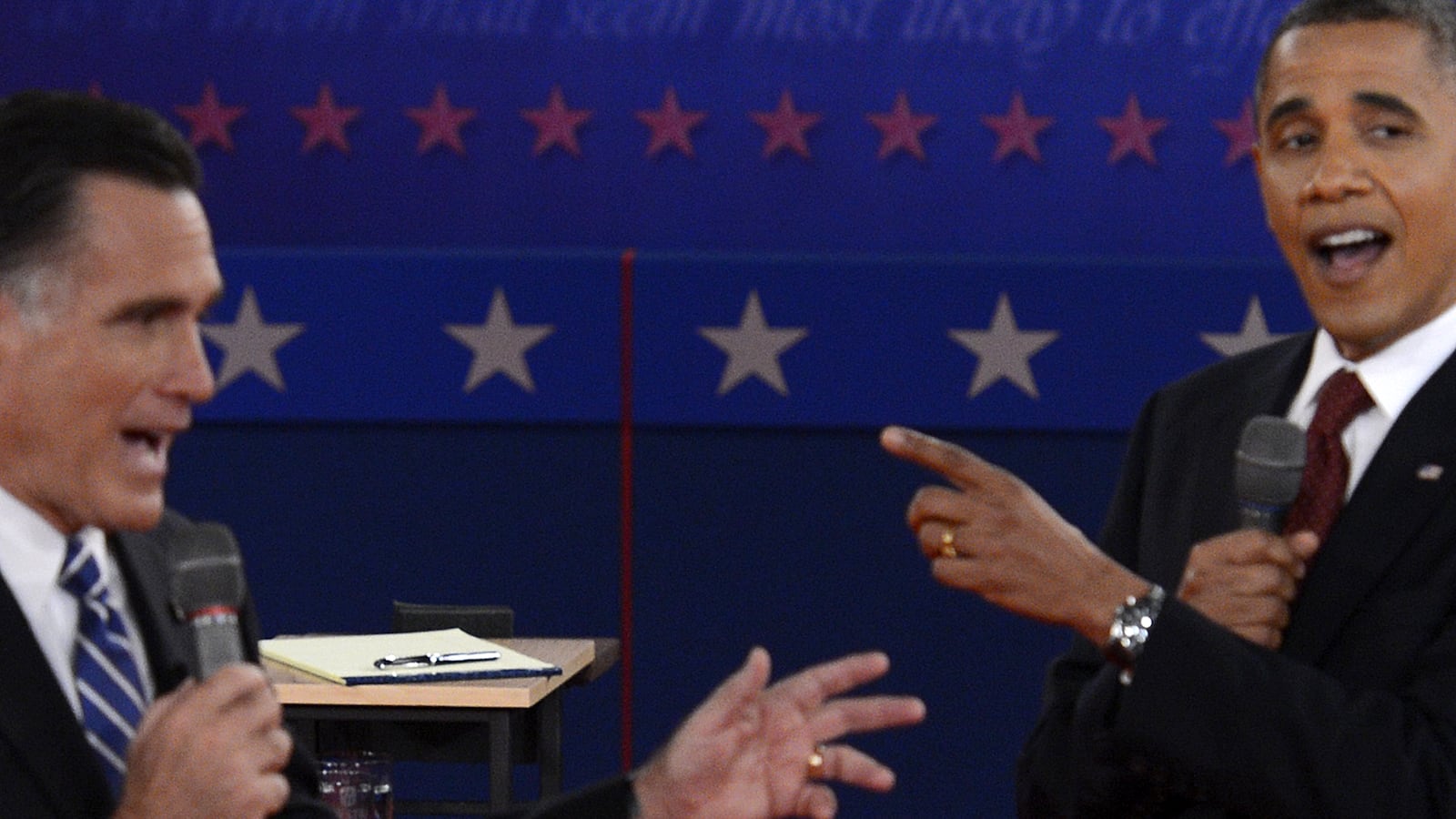
The president had a good outing Tuesday night in Hempstead, Long Island; Mitt Romney, not so much.
But my takeaway from the evening pertains this time more to substance than to style. It's really remarkable to me, and disturbing, how little either candidate had to offer on the great economic challenges faced by middle-class Americans.
Here's Josh Barro, getting it right:
Romney repeatedly talked about his “five-point plan,” which is a rehash of Bush-era policies. It has no content aimed at the specific problems of our time: weak demand, high unemployment and a still-troubled housing market.Obama touted his misguided fetish for manufacturing and green jobs, as though what America needs is the federal government deciding which industries should grow. He combined those talking points with platitudes about education.That’s not to say I’m surprised. If Obama had a serious economic agenda, he would presumably be working to implement it. Instead, his administration appears resigned to plod along in a tepid recovery that will leave unemployment above 6 percent for years to come.And if Romney has a serious economic agenda, he has worked very hard to ensure that nobody finds out what it is.
But there's more bad news. President Obama, fixated on winning Ohio, kept recurring to manufacturing and its revival. Here's what he didn't say:
Manufacturing accounts for only about 9% of US jobs. Leave aside government employment, and manufacturing's share of jobs is only about one-sixth.
For all the talk about competing with China, it is not Chinese industrial labor that is exerting downward pressure on the wages of the accountants, lab technicians, and paralegals of Long Island. Their jobs are being revolutionized by information technology or off shored to English-speaking Indians. President Obama touts higher education as the solution to all economic ills, but in the first half of the 00s, the wages of college graduates stagnated. What happens to the typical American worker in a world where routine white-collar work is exposed to the same global competition as blue-collar work?
President Obama's big idea is that government investment will trigger demand for skilled American labor. Even if this idea were workable, it implies a permanently larger role for government as employer and contractor. But what reason is there to think the idea workable? Government makes a bad enough investment banker when it is single-mindedly focused on a single goal, e.g., back winning technologies. Give the government a dual mandate - back winning technologies that also happen to drive wages upward - and wage and failure seem inevitable.
Meanwhile, Mitt Romney doesn't seem to admit the question at all. He thinks like an employer, and that habit is so deeply engrained in him that nothing can change it, not even face-to-face questioning from people who see the world from a very different point of view. He envisions lots of jobs being created, but the wages piece doesn't interest him very much - if, indeed, he sees higher wages as a good thing at all, which he well may not.
Romney had this to say about the president's healthcare reform:
[T]he thing I find the most troubling about Obama Care, well it’s a long list, but one of the things I find most troubling is that when you go out and talk to small businesses and ask them what they think about it, they tell you it keeps them from hiring more people.
All other things being equal, a requirement to provide health care to employees (or pay a fine) may well deter hiring, especially of the very lowest-skill, lowest-wage employees. But implicit in Romney's answer is the assumption that low-wage work will continue to be the driver of job growth in the US economy in the next recovery as it has been in other recent recoveries. That's a troubling thought.
Accurately or inaccurately (I think inaccurately) the candidates are jointly delivering a choice to the American people of an economy that may create more jobs (more of which are poorly paid and uninsured) or that may support extra higher-benefit employment (but only due to government subsidies that must be supported by taxes on everybody else). It's not an attractive pair of alternatives.






